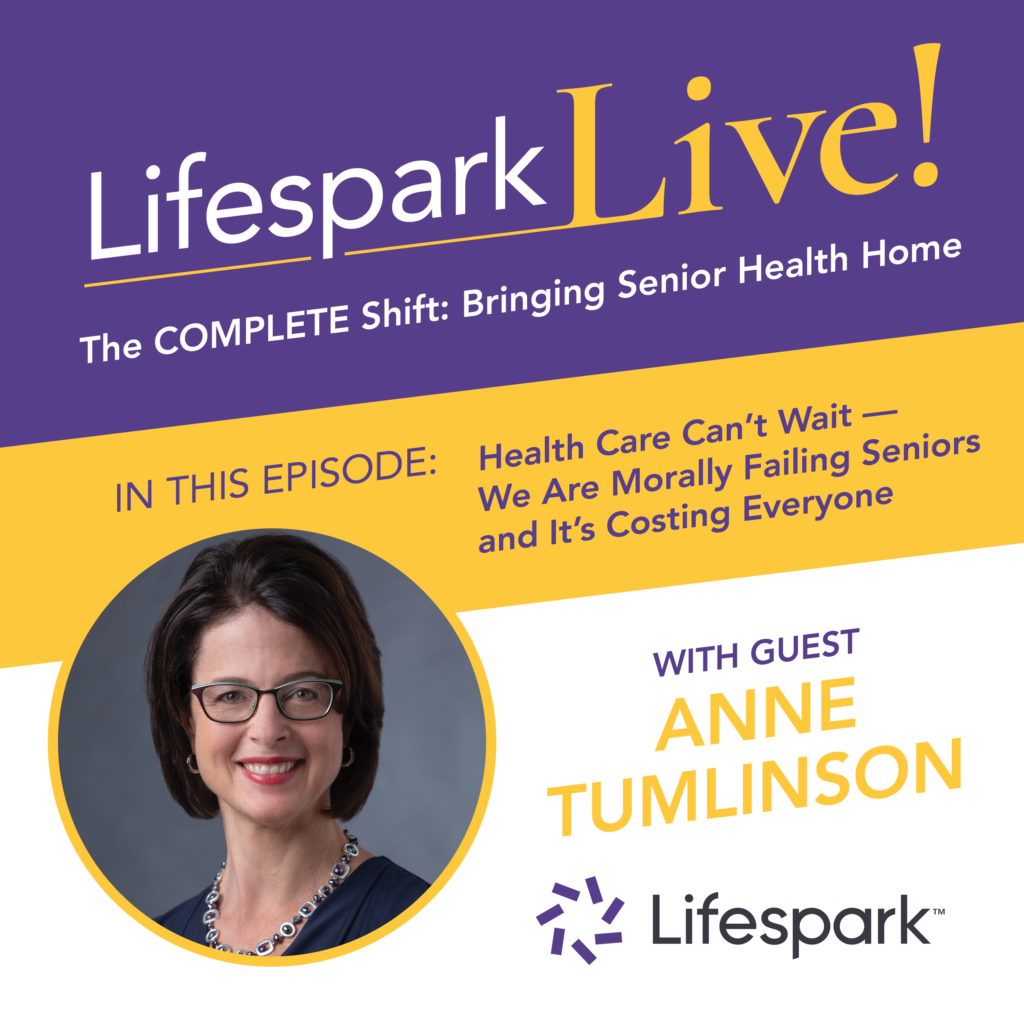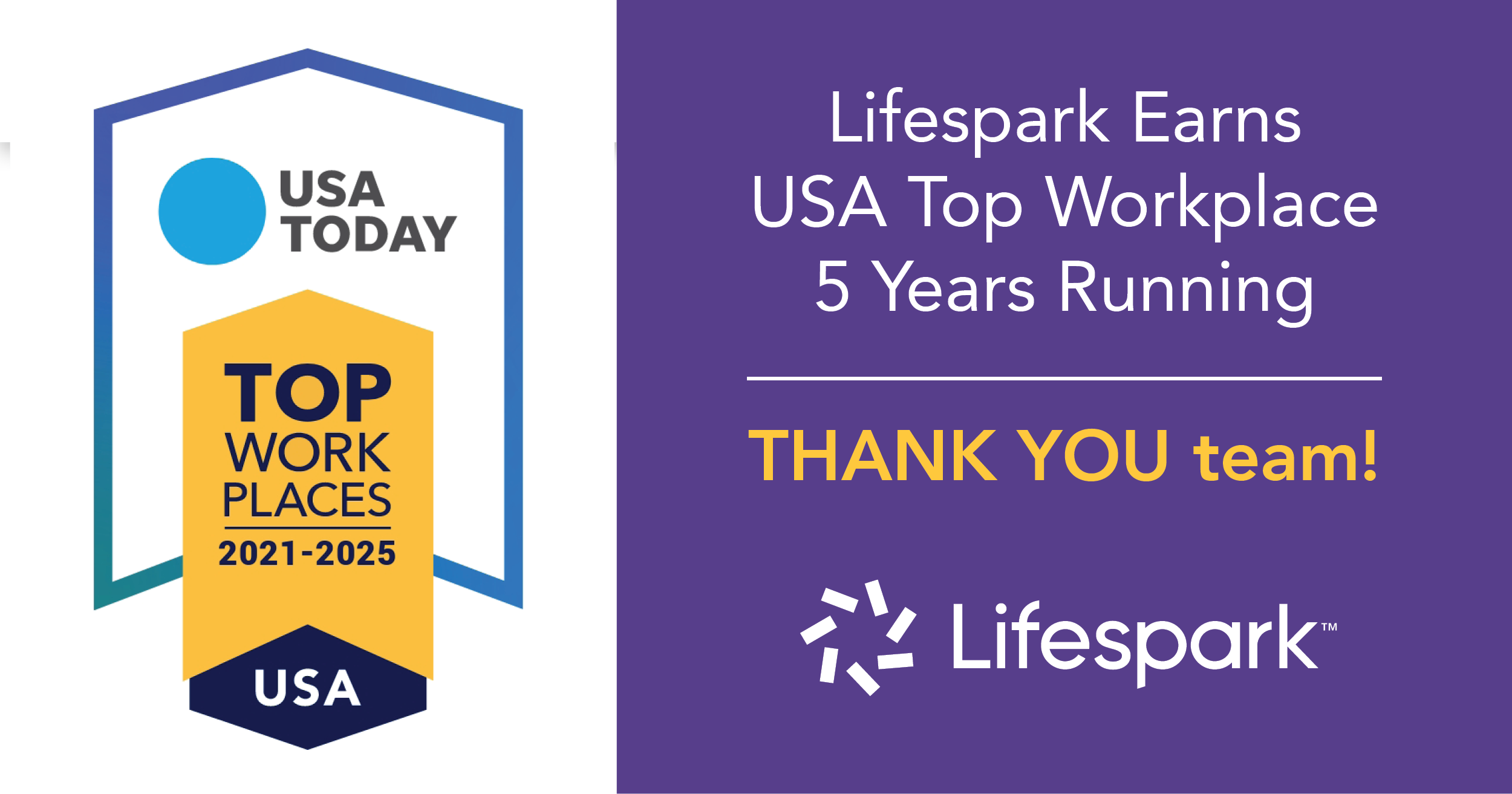
Health care inboxes have been flooded with the recent news of mergers and acquisitions – a trend line that’s been evolving for a long time as companies get in the value-based game. With companies like CVS and their recent Signify Health acquisition and Amazon and OneMedical, we start to see the serious opportunity that shifting away from fee-for-service into value-based brings.
Thanks to payment reform, insurance companies are finding themselves on a quest to become ‘payviders,’ both a payer and provider, to see if they can be the solution to a looming problem we are facing in this country. But are we really ready to care for a rapidly growing aging population?
In our recent podcast, The COMPLETE Shift Lifespark CEO Joel Theisen asks Anne Tumlinson if we are at a point, even with all this evolution, where payment systems and designs are up to the task. Her response was an immediate: ‘no, definitely not.’
And Anne would know. As the founder and CEO of ATI Advisory, a national research and consulting firm that shapes public policy and business strategy and blogger and founder of the online community, Daughterhood, Anne has spent over 25 years working to improve how America delivers care for our oldest and frailest adults. Her work was presented in a recent Nexus Insights report, “Where Am I, Where Do I Go,’ on the missing entry point to long-term care solutions for older adults and their caregivers.
There is also skepticism in the marketplace when it comes to value-based and whether or not it’s producing any value at all. While Joel agrees that value-based care has not produced as it should, he disagrees vehemently that it needs a time-out or slowing down. In fact, when it comes to value-based is good but global risk is better and he’s all in. Joel points out that fee-for-service is not a viable payment solution to optimize health and he and Anne get into this, rather provocatively. “When we reward people for sickness, that’s a really sad situation. And yet that’s what we do. People don’t like to say it that way, but I do – when you are sick, the more volume the system makes. When you’re healthy, you make nothing,” said Joel. Now, what if we flipped that?
Joel suggests that we have not embraced the opportunity within value-based care to produce meaningful outcomes – the payment model is not the core problem, value-based is not the enemy. We need accountability, leadership, creativity, and commitment to transform health care – and Anne and Joel cover a lot of that ground in this podcast.
Listen to: The COMPLETE Shift podcast with Joel Theisen and guest, Anne Tumlinson– “Are We Morally Failing Our Seniors’
Putting all of that discussion aside, they take a step back and look at who we are really trying to serve. For Lifespark and Anne’s work with ATI and Daughterhood, that’s seniors and their families. Are we morally failing them? There’s good intent by many in health care to try to serve seniors better and lower long-term costs but both and Anne and Joel question if we are doing it the right way and they discuss this in the podcast. Anne looks at this through the lens of both a daughter and a policy maker and believes there’s an unbelievable amount of suffering that’s happening as a result of the disconnected experience people face. Families are creating their own completely unique and separate system of care delivery on its own, without any help, and managing it. “It’s ridiculously inefficient,” says Anne. “And it makes me uncomfortable morally.”
Joel and Anne get serious in this podcast about what we need to accomplish, specifically, to create better systems of care. Having full actual risk, not just parts of the ‘value-based’ craze of caring for populations but going at-risk to serve them fully and produce measurable results is the only way to move the needle. It’s more than a monthly allocation per plan per member but total global risk for the individual. When you do that, you look at who you serve a little differently – you see them as a person beyond their diagnosis or episode to what will help them long-term and use their health plan to give them wellness, not sickness, to keep them thriving.
PACE and Medicare Advantage plans have pieces of what people need but they aren’t accessible by all seniors. Anne and Joel get candid about how there are a lot of pathways today that exist to put together all of these models and funding streams to make it available for every senior – not just the rich, poor, healthiest or sickest, but all. The good news that should perk the ears of health care execs listening – there are financial rewards for being human in health care.
This podcast was full of interesting nuggets and takeaways. Regardless of what you believe or how you think health care delivery should be solved, the message by Anne and Joel was loud and clear: we have only a few years to figure this out and make the investments we need right now to serve the senior population. And if we don’t, we will continue to fail our seniors. Even the biggest organizations like Amazon and CVS will soon find, there’s no value in that.
Listen to our latest podcast and subscribe to get the latest episode delivered right to your inbox and explore our other podcasts with Steve Gillon and Richard Leider. And if you’re ready to get serious on serving seniors, let’s partner. Aging Magnificently will take all of us.



